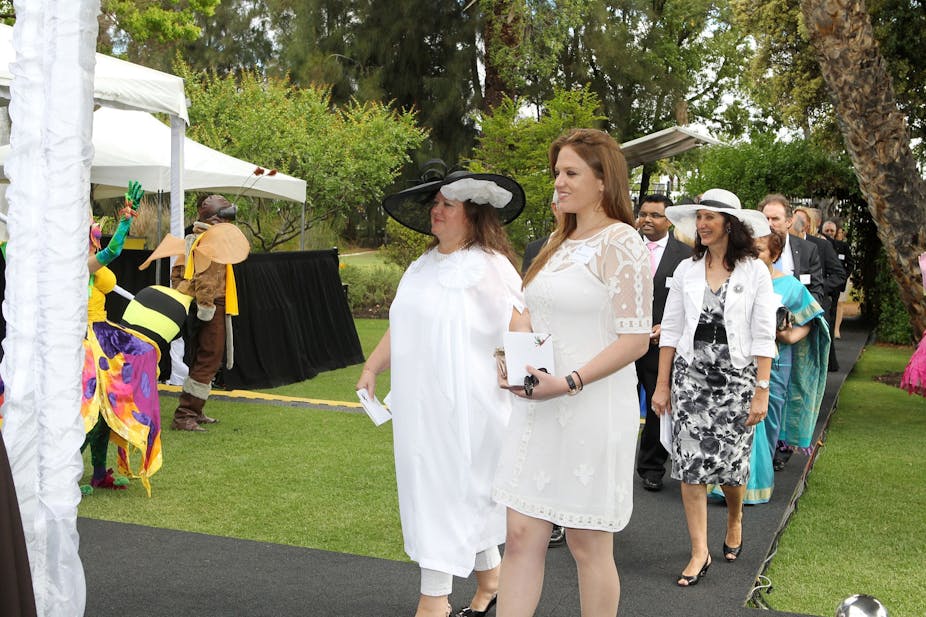In every parent’s life there comes a time when it’s best to hand over the keys to the kids and treat them as adults. That time comes quicker if they haven’t been wrapped in cotton wool or reminded of inadequacies.
People with lots of money seem to be different. Some seek to rule beyond the grave, rule for several generations if they have picked a good trust lawyer and tax minimisation experts. Others seem to just have trouble letting go. On occasion that leads to suspicion, warranted or otherwise, that the parent may not have been a model of perfection.
If you’re poor you sort it out over a barbecue or the state steps in and sorts it out for you. If you are rich you can play out your unhappiness on the front page of the Sydney Morning Herald and in “he said, she said” interviews with biographers. That is entertaining for people who will never have the money to buy a private island or two, or need a small army to protect them from kidnappers. It reminds us that money can’t buy happiness, although as a trust lawyer recently reminded me, it buys a better class of misery.
New South Wales Chief Justice Tom Bathurst this week was an actor in the Rinehart Privacy Show, a comedy that has been appearing in courts across Australia to the delight of teams of lawyers and the people who supply them with upmarket cars, cufflinks and other trinkets. Ms Rinehart, if you are one of those busy people who’ve skipped the tabloids, is Australia’s richest person. She’s got a major stake in two media groups and appears to be interested in influencing the direction of three of Australia’s leading newspapers. She’s also, we are told, a deeply private person.
She has expressed that privacy – or merely family unhappiness – through a string of court actions against some of her children and against journalists. Her legal representatives have also apparently sent letters “for information” to academics and others who have written about the disputes. Those letters are standard practice in Australia and overseas but receipt of what is popularly known as a “scarygram” does tend to chill the fainthearted and raise doubts about the resilience of citizen journalism.
Litigation with the very best lawyers (and paralegals) that money can buy costs money, lots of money. Defending action aimed at suppressing information is a major expense. Chief Justice Bathurst’s judgement in Rinehart v Welker (No 3) [2012] NSWCA 228 ordered Ms Rinehart to pay the legal bills of three of her four children, who appear to have serious disagreements with her about the operation of a family trust.
Those disagreements have not been tested in court. They may indeed never be tested, because a resolution may be reached outside the courthouse in a way that doesn’t substantiate speculation about a breach of trustee duties sufficient to raise questions about the trustee’s fitness. Such speculation may of course be misplaced.
The ABC and other media organisations have sought information about the dispute and the trust arrangements. That reflects media opportunism – there’s nothing like headlines about alleged misbehaviour by the rich and famous. It also reflects a fundamental public interest in the governance of trusts, particularly trusts involving billions of dollars and someone who is a leading citizen. Ms Rinehart has vigorously sought to use the courts to keep information locked up. The media have argued that transparency in judicial proceedings is a fundamental basis of Australian justice; implicitly wealthy corporations and individuals should not have special protection.
That argument has been broadly endorsed by Australia’s highest courts in litigation over disputes involving Ms Rinehart and her peer Solomon Lew. This week’s judgement by Chief Justice Bathurst in the NSW Supreme Court saw Ms Rinehart being ordered to pay the media’s costs.
That decision is useful for executives and journalists in media organisations, given that they have to justify spending and paying several hundred thousand dollars in legal costs is money that could be spent on paying journalists, board members and e-publishing consultants.
The real significance of the decision is that courts are demonstrating both their independence and a recognition of the importance of open justice. The NSW Supreme Court in the Rinehart decision and the Victorian Supreme Court in the Lew decision is founded on acknowledgement of the need for transparency in litigation – rich and poor alike are exposed to the glare of the spotlight or the tedium of barristers arguing legal minutiae – and a distaste for the use of suppression orders or other mechanisms to privatise what is properly public. Courts will appropriately quarantine matters regarding national security or sexual assault but money cannot buy a secret hearing about allegations of serious misconduct. That’s as important as the Finkelstein Review.
Gawkers and lawyers alike, along with bodies such as the Australian Taxation Office and Australian Securities Investments Commission, will wait for September when the next act in this comedy is scheduled to appear in court. If Ms Rinehart is passionate about privacy - and about a happy family - she might sensibly deprive us of that enjoyment by settling with the kids.

